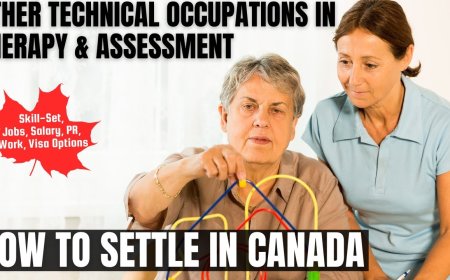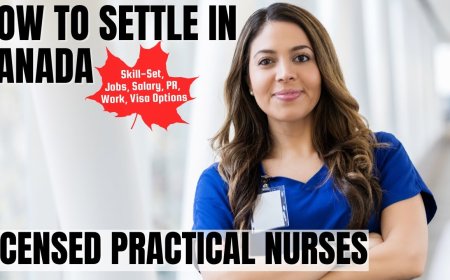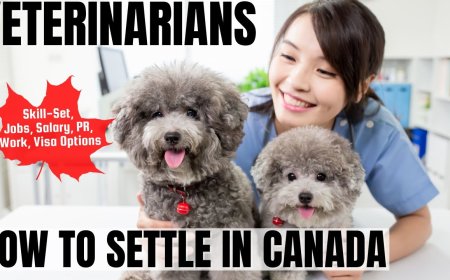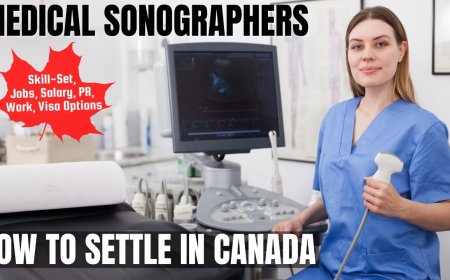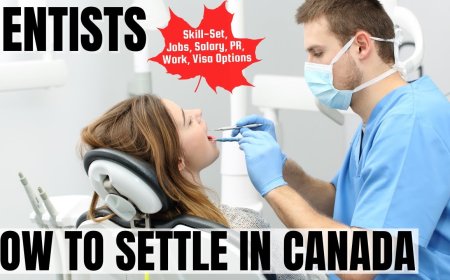Other medical technologists and technicians (except dental health) Migration to Canada: A Detailed Guide on Salaries, Professional Responsibilities, and Preferred Locations
Welcome to the pathway to Canada immigration for skilled professionals and trade workers. This guide is specifically tailored for Other medical technologists and technicians (except dental health) looking to work and settle in Canada, offering a deep dive into the essential aspects of immigration and employment in this field.
Introduction
Canada is known for its welcoming environment for immigrants, especially those in the healthcare field. In this article, we will be focusing on the career and immigration prospects for Other medical technologists and technicians (except dental health) in Canada. We will cover the profile description, main job duties, education and licence requirements, skills requirement, median and retirements, salary details, as well as possible visa options for individuals looking to pursue a career in this field in Canada. Whether you are a recent graduate or an experienced professional looking to relocate, this article will provide you with valuable information on how to navigate the Canadian job market in this industry.
What is the Profile Description of a Other medical technologists and technicians (except dental health) as per the Canadian National Occupation Classification (NOC) Standards?
Other medical technologists and technicians (except dental health) are a diverse group of professionals who work in various healthcare settings. This includes dietary technicians who work in hospitals, nursing homes, schools, and food service establishments. Pharmacy technicians can be found in retail and hospital pharmacies, long-term care facilities, and pharmaceutical companies. Ocularists are skilled professionals who work in custom ocular prosthetic laboratories or may work independently. Prosthetists, orthotists, and prosthetic and orthotic technicians work in hospitals, clinics, laboratories, and manufacturing companies, providing prosthetic and orthotic devices to patients. Some of these professionals may also choose to be self-employed in their respective fields.
What are the Main Job Duties of a Other medical technologists and technicians (except dental health) in Canada?
- Assist dietitians or nutritionists in planning and supervising food service operations, including menu planning and diet development
- Assist pharmacists in maintaining medication inventories, accurately processing prescriptions, and preparing medications for clients
- Design, fabricate, and fit ocular prostheses and orthotic appliances, including artificial limbs, braces, and supports
- Provide advice and information to patients on the use, care, and maintenance of prosthetic and orthotic appliances
- Supervise and direct the activities of prosthetic and orthotic technicians, ensuring the proper assembly and fitting of appliances
What are the Education, Certifications, and Licensing Requirements to Work as Other medical technologists and technicians (except dental health) in Canada?
To become a dietary technician, individuals must complete a two to three-year college program in dietary technology and undergo supervised practical training. Pharmacy technicians typically need to finish a two to three-year college program in pharmaceutics, and in most provinces, registration with a regulatory body is mandatory. Ocularists must complete the education program offered by the American Society of Ocularists, along with supervised practical training or a five-year program under a certified ocularist, and obtain certification from the National Examining Board of Ocularists. Prosthetists and orthotists need to complete a two-year college program in prosthetics and orthotics technology, as well as three years of supervised practical training. Certification by the Canadian Board of Certification of Prosthetists and Orthotists may also be necessary. Finally, prosthetic and orthotic technicians require completion of a two to three-year college program in prosthetics and orthotics, followed by one to two years of supervised practical training or up to four years of training under a certified professional after secondary school. Registration with the Canadian Association of Prosthetists and Orthotists may also be required for these technicians.
What Essential Skills are Required for Other medical technologists and technicians (except dental health) to succeed in Canada?
To be successful in the profession of other medical technologists and technicians (except dental health), individuals must possess a variety of essential skills. Working with technological equipment and machinery, using specialized instrumentation and equipment, providing service and care by treating people or animals and serving others, managing tasks efficiently by supervising operations, building skills by restoring and repairing equipment, analyzing information through examining, diagnosing, inspecting, testing, planning, and researching, communicating effectively through promoting, selling, advising, consulting, teaching, and training, and expressing creativity through designing are all crucial competencies required for this profession. Overall, a combination of technical expertise, interpersonal skills, problem-solving abilities, and creativity is essential to excel in this field.
What is the Median Age and Retirement Age for Other medical technologists and technicians (except dental health) in Canada?
It is not possible to determine the median age and average retirement age of skilled professionals working as Other medical technologists and technicians (except dental health) as the data is not available. This may be due to various factors such as a lack of comprehensive data collection or specialized retirement trends within this particular occupation. However, it is important for individuals in this field to plan for their retirement and consider factors such as savings, investments, and potential career transitions as they approach their retirement age.
How many job openings exist for Other Other medical technologists and technicians (except dental health) in Canada, and what's their provincial distribution?
The job market for Other medical technologists and technicians (except dental health) in Canada is relatively stable, with a total of 186 job openings across the country. The province with the highest number of job openings is Québec, with 118 positions available. Saskatchewan follows with 22 openings, while New Brunswick has 16 job opportunities. Ontario, British Columbia, and Alberta have fewer job openings, with 12, 6, and 5 positions available respectively. Manitoba, Nova Scotia, Newfoundland and Labrador, Northwest Territories, and Prince Edward Island have the least number of job openings, with only 2 or 1 position available in each province. Overall, Québec stands out as the province with the maximum job openings, while Prince Edward Island has the lowest number of job opportunities for Other medical technologists and technicians in Canada.
What is the hourly wage or salary of Other medical technologists and technicians (except dental health) in different Provinces of Canada?
According to the wage data for Other medical technologists and technicians (except dental health) in Canada, there is a significant variation in salaries across provinces. In British Columbia, the wages range from a low of $15.20 to a high of $27.80, with a median wage of $19.80. Alberta has the highest wages, with a high of $32.00, median of $23.00, and low of $15.64. Saskatchewan follows closely behind, with wages ranging from $13.00 to $31.20, and a median wage of $18.00. On the lower end of the spectrum, Prince Edward Island has the lowest wages, with a high of $23.90, median of $15.45, and low of $13.00. Quebec also has relatively lower wages, with a high of $24.13, median of $16.35, and low of $13.50. Overall, Ontario has the highest wages in the profession, with a high of $33.00, median of $21.00, and low of $15.00. New Brunswick and Nova Scotia also offer competitive wages, with New Brunswick having a high of $28.00, median of $17.00, and low of $12.00, and Nova Scotia with a high of $25.00, median of $16.25, and low of $12.95. It is evident that wages for Other medical technologists and technicians (except dental health) in Canada vary greatly depending on the province of employment. Prospective professionals in this field should consider these wage differences when evaluating job opportunities in different regions of the country.
What are the various visa options available for Other medical technologists and technicians (except dental health) migrating to Canada?
Other medical technologists and technicians (except dental health) are currently in high demand in Canada, making them eligible for Category based Express Entry Invitation draws for Canadian Permanent Residency under the Healthcare Occupations Category. The Express Entry Visa Category is a streamlined process for skilled workers to obtain PR in Canada. Additionally, Other medical technologists and technicians (except dental health) can explore Provincial Nominee Programs and Employer Sponsored Work Visas as alternative pathways to immigrate to Canada. There may also be other Visa options available for this profession. To learn more about your options and discuss the details of each program, book an appointment with our immigration professionals today.
Have Questions or Need Assistance?
If you have any queries or require assistance with your immigration plans, we're here to help. Our experienced immigration consultants are ready to provide personalized guidance tailored to your specific needs.
Don't hesitate to reach out and schedule an appointment today. Whether you're seeking clarification on immigration processes, exploring visa options, or need support with documentation, we're dedicated to assisting you every step of the way.
Book an appointment with our team to discuss your immigration goals and receive expert guidance for your journey to Canada.
What's Your Reaction?
 Like
0
Like
0
 Dislike
0
Dislike
0
 Love
0
Love
0
 Funny
0
Funny
0
 Angry
0
Angry
0
 Sad
0
Sad
0
 Wow
0
Wow
0






















































